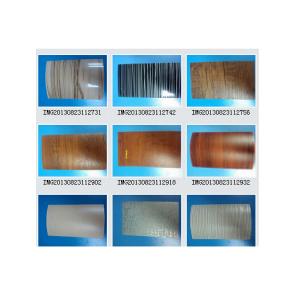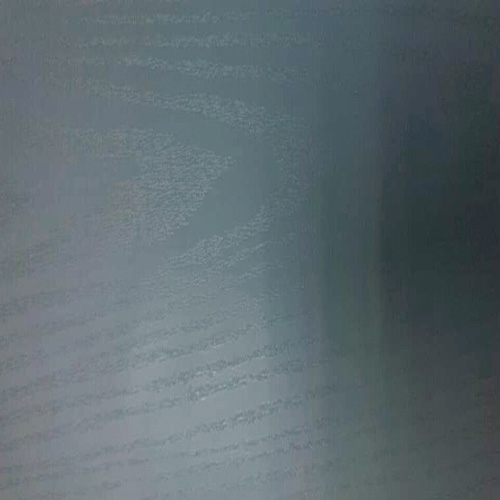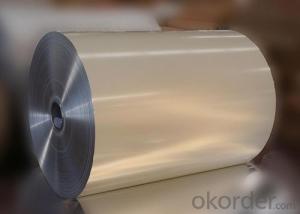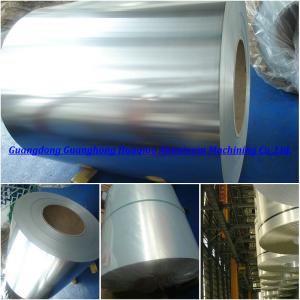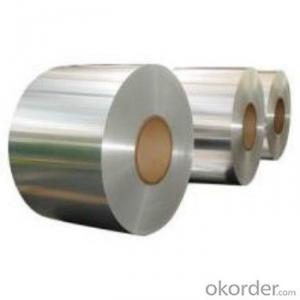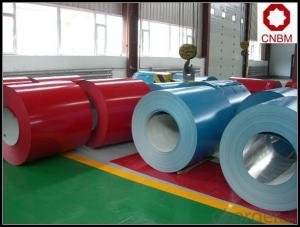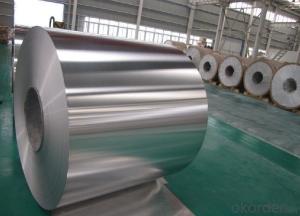Aluminum Steel Coil Plate Type Copper Tube Aluminium Fin Coil
- Loading Port:
- Shanghai
- Payment Terms:
- TT or LC
- Min Order Qty:
- 5 m.t.
- Supply Capability:
- 10000 m.t./month
OKorder Service Pledge
OKorder Financial Service
You Might Also Like
1.Structure of Aluminium Alloy Coil for Bus Stop Description:
We can produce aluminum sheet,color aluminum sheet and plastic composite panel base material. They are widely used in construction and decoration, hardware and electric appliances manufacture, automobile manufacture and other industrial and civil purposes, such as electronic capacitor, rice cooker, refrigerator, computer casting, lamp shade, air-conditioner, cosmetics cover and box, air-conditioner radiator, inner container of disinfecting cabinet, ceiling board, automobile motherboard, cover board and top board, etc.
2.Main Features of Aluminium Alloy Coil for Bus Stop :
Good Corrosion Resistance
Good Machinability
High Quality
Competitive Price
3. Aluminium Alloy Coil for Bus Stop Images:
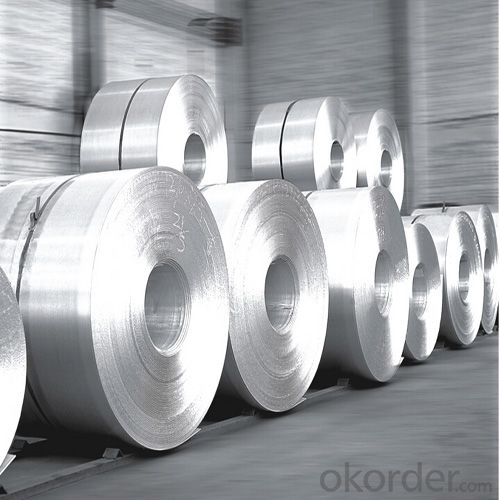
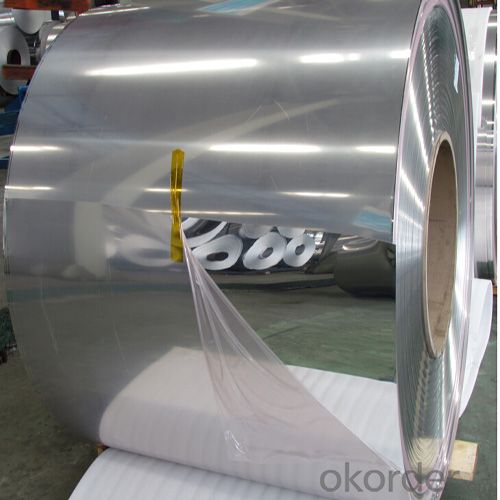
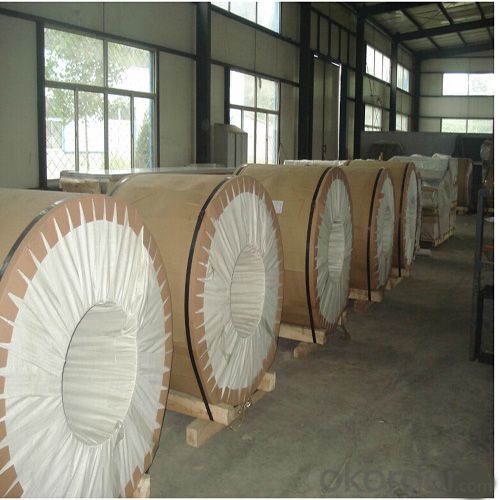
4. Aluminium Alloy Coil for Bus Stop Specification:
| Alloy No. | Thickness (mm) | Width (mm) | Length (mm) | Temper | |
| A1050,A1060, A1070,A1100 | 0.2-100 | 20-2200 | 20-8000 | O,H12,H22,H14,H16,H18, H24,H26,etc | |
| 3A21,A3003,A3105,A3004 | 0.2-100 | 20-2200 | 20-8000 | O,H14,H18,H24,etc | |
| A5052 ,A5005,A5083,A5754 | 0.2-100 | 20-2200 | 20-8000 | O,H18,H24,H32,H34,H111,H112 ,etc | |
| A6061,A6082,A6063 | 0.2-200 | 20-2200 | 20-8000 | T4,T6, T651,etc | |
| A8011 | 0.2-100 | 20-2200 | 20-8000 | O,H12,H22,H14,H16,H18,H24,H26, etc | |
5.FAQ
Q1.How long have you been in this product?
A1:More than 10 years.
Q2. What's the minium quantity(MOQ)?
A2. 5 Metric tons
Q3. How long is shipping time?
A3. 7 (ready-made products)-25 days(OEM)
Q4. How do you guarantee the quality?
A4. 1. Cooperating and Exchaning experience with sevral quoted aluminum companies
2. Japanese and Swiss production line and skilled works (regular training and testing)
3. more than 10 years production experience.
Q5. Do you have after sale service?
A5. Yes. Any quality problem occurs within one year, pls take photoes,we will be responsible.
- Q: How should aluminum coil be stored to maintain its quality and prevent damage?
- <p>The best way to store aluminum coil involves several key practices: Store the coil in a clean, dry, and well-ventilated area to prevent moisture and dirt accumulation. Ensure the storage area is free from corrosive substances and temperature fluctuations. Use pallets or racks to keep coils off the ground, and avoid stacking heavy items on top. Protect coils with plastic covers or wrapping to prevent dust and scratches. Organize coils by size, type, and grade for easy access and to prevent damage during handling. Regularly inspect stored coils for signs of damage or corrosion and rotate stock to minimize prolonged storage of any single coil.</p>
- Q: What are the potential applications of coil-annealed aluminum coils?
- Coil-annealed aluminum coils have a wide range of potential applications due to their unique properties. They can be used in manufacturing various products such as automotive parts, electronic components, packaging materials, construction materials, and even in the aerospace industry. The annealing process enhances the coil's flexibility, strength, and corrosion resistance, making it ideal for applications where durability, formability, and lightweight characteristics are crucial.
- Q: What are the bending and forming capabilities of aluminum coils?
- Aluminum coils have excellent bending and forming capabilities due to their inherent flexibility and malleability. They can be easily bent, shaped, and formed into various complex shapes and designs without losing their structural integrity. This makes them highly versatile and suitable for a wide range of applications in industries such as construction, automotive, aerospace, and manufacturing.
- Q: This question asks for methods to assess the quality of aluminum coils, which is important for various industries that use aluminum for manufacturing and construction.
- <p>To check the quality of aluminum coils, you should inspect for surface defects such as scratches, dents, or discoloration. Measure the thickness and width to ensure they meet specifications. Test the hardness and tensile strength to verify mechanical properties. Conduct a chemical analysis to confirm the alloy composition. Check for internal defects using non-destructive testing methods like ultrasonic testing. Assess the coil's flatness and straightness to prevent issues in further processing. Finally, ensure proper packaging and storage conditions to maintain coil quality.</p>
- Q: How are aluminum coils tested for thickness and flatness?
- Aluminum coils are tested for thickness and flatness using various methods to ensure they meet the required specifications. One common method is the non-destructive eddy current testing, which involves passing an alternating current through a coil and measuring the changes in the magnetic field caused by eddy currents induced in the aluminum. These changes can be used to determine the thickness of the coil. In addition to eddy current testing, ultrasonic testing is also employed to measure the thickness of aluminum coils. Ultrasonic waves are sent through the coil, and the time it takes for the waves to bounce back is measured to determine the thickness. This method is highly accurate and can identify any variations in thickness across the entire coil. To assess the flatness of aluminum coils, a straight edge or a laser beam is often used. The coil is placed on a flat surface, and the straight edge or laser beam is placed across the surface of the coil. Any deviations from a perfectly flat surface can be easily identified by observing the gaps or irregularities between the coil and the straight edge or laser beam. In some cases, advanced technologies like laser profilometry can be used to create a three-dimensional map of the surface of the coil, allowing for a comprehensive analysis of its flatness. This method provides highly detailed information about any variations in flatness across the coil's surface. Overall, aluminum coils undergo rigorous testing procedures to ensure their thickness and flatness meet the required standards. These tests are vital in maintaining the quality and reliability of aluminum coils, especially in applications where precision and consistency are of utmost importance.
- Q: How do aluminum coils contribute to LEED certification requirements?
- There are several ways in which LEED certification requirements can be met through the use of aluminum coils. Firstly, aluminum is an incredibly sustainable material due to its 100% recyclability without any loss of quality. This means that the inclusion of aluminum coils in construction projects can contribute to LEED credits for materials and resources, specifically in the category of recycled content. Furthermore, aluminum coils possess energy efficiency properties. Being a lightweight material, aluminum requires less energy for transportation and installation compared to heavier alternatives. Additionally, aluminum coils exhibit excellent thermal conductivity, enabling efficient heat transfer and reducing energy consumption for heating and cooling systems. These energy-saving advantages can lead to LEED credits in the categories of energy and atmosphere. Moreover, aluminum coils offer a long lifespan and require minimal maintenance. This durability minimizes the need for frequent replacements and reduces waste generation. LEED acknowledges the use of durable materials that promote longevity and lessen the environmental impact caused by constant replacements. Therefore, the incorporation of aluminum coils into construction projects can aid in earning LEED credits for sustainable sites and materials and resources. In conclusion, aluminum coils play a significant role in meeting LEED certification requirements by providing high levels of recyclability, energy efficiency, and durability. The utilization of aluminum coils in construction projects can assist in achieving LEED credits across various categories, ultimately promoting sustainable and environmentally-friendly building practices.
- Q: How do aluminum coils perform in coastal areas with high salt content?
- Aluminum coils perform relatively well in coastal areas with high salt content due to their inherent corrosion resistance. Aluminum has a natural oxide layer that forms on its surface, providing a protective barrier against saltwater and preventing corrosion. This oxide layer is highly resistant to salt-induced corrosion, making aluminum coils suitable for coastal environments. However, it is important to note that saltwater can still have some corrosive effects on aluminum over time, especially in areas with constant exposure to salt spray and high humidity. To enhance the performance and longevity of aluminum coils in such coastal areas, additional protective measures can be taken, such as applying specialized coatings or utilizing alloys with higher corrosion resistance. Regular maintenance and cleaning of the coils are also essential to remove any salt deposits that may accumulate on the surface. This can be done by rinsing the coils with fresh water periodically to remove salt residue. Additionally, avoiding the use of abrasive cleaners or harsh chemicals is crucial to prevent any damage to the protective oxide layer. Overall, while aluminum coils offer good resistance to saltwater corrosion, proper care and maintenance are still necessary to ensure optimal performance and prolong their lifespan in coastal areas with high salt content.
- Q: Can aluminum foil coil be stores for a long time?
- It is ok within one or two years, but for five or six years, it will be oxidized.
- Q: This question asks for a comparison of the benefits and drawbacks of utilizing aluminum coils in food storage.
- <p>Advantages of using aluminum coils for storing food include their excellent heat conductivity, which allows for even heating and cooling, making them ideal for temperature-sensitive food items. They are also lightweight, durable, and resistant to corrosion, which enhances their longevity. Additionally, aluminum coils are recyclable, contributing to environmental sustainability. Disadvantages include potential health concerns due to the leaching of aluminum into food, especially in acidic environments. There's also the risk of denting or scratching the surface, which can compromise the integrity of the coil and lead to contamination. Moreover, aluminum coils may not be suitable for all types of food storage, particularly those requiring airtight or vacuum sealing.</p>
- Q: Are aluminum coils suitable for electrical conductivity applications?
- Yes, aluminum coils are suitable for electrical conductivity applications. Aluminum is known for its excellent electrical conductivity, second only to copper among common metals. It has approximately 61% of the conductivity of copper, making it a reliable choice for various electrical applications. Aluminum coils are commonly used in power transmission, transformers, and electrical motors due to their ability to efficiently conduct electricity. Additionally, aluminum coils are lightweight, which makes them easier to handle and install in electrical systems. However, it is important to note that aluminum has a higher resistance compared to copper, so larger aluminum conductors may be required to achieve the same electrical performance. Overall, aluminum coils are a suitable option for electrical conductivity applications.
Send your message to us
Aluminum Steel Coil Plate Type Copper Tube Aluminium Fin Coil
- Loading Port:
- Shanghai
- Payment Terms:
- TT or LC
- Min Order Qty:
- 5 m.t.
- Supply Capability:
- 10000 m.t./month
OKorder Service Pledge
OKorder Financial Service
Similar products
Hot products
Hot Searches
Related keywords
